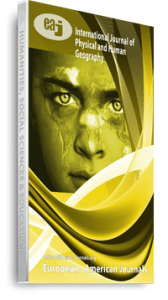Urban ecological systems are characterized by complex interactions among institutional, socio-economic and environmental variables. These interactions generate complex human-dominated landscapes, which significantly influence effective functioning of local and global earth ecosystems and the services they provide to humans and other life on earth. Changes in ecological conditions that result from human actions in urban areas ultimately affect physical morphology and structural outlook. Using Survey Research Design (SRD) via questionnaire administration, observation and personal interview for data collection, authors investigate the impact of urban growth on the environment as occasioned by the existence of a university; essentially, the effects that the growth has on the ecological system of the community. Findings in the study revealed that urban development affects the spatial heterogeneity of the landscape; especially the patterns of variation in land cover and changes in land use over time. The authors propose that effective monitoring agent to guide the direction and coherence of development in the study area is needed to forestall the haphazard pattern of development that is rampart in the area. Also, essential services like power supply in the area need urgent attention so as to facilitate adequate and regular electricity supply in the area.
Keywords: EKSU, Urban growth, land-use pattern

